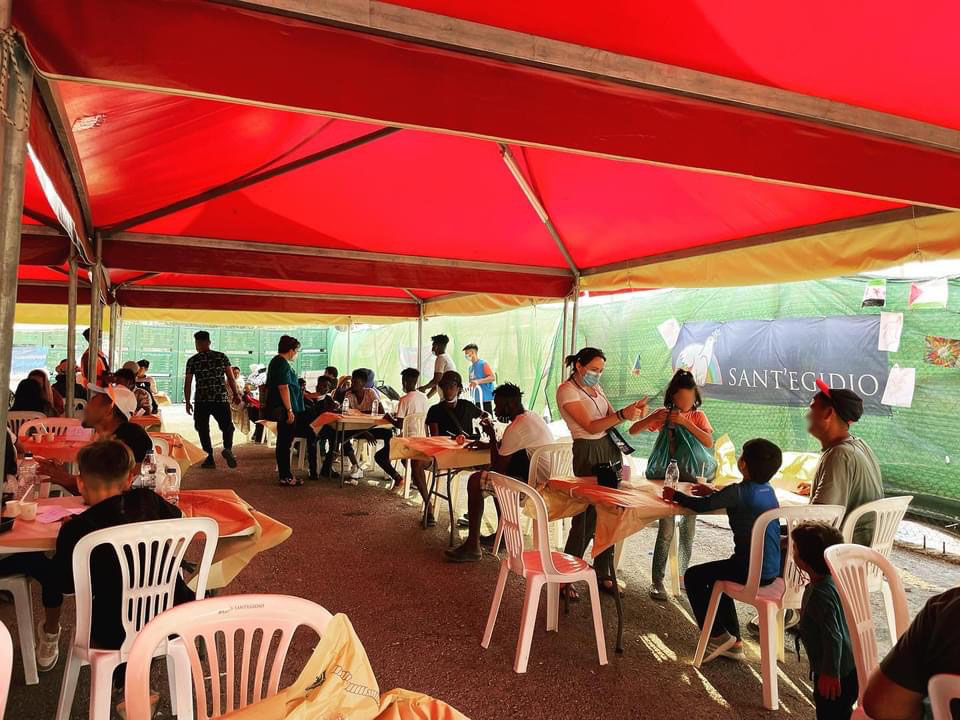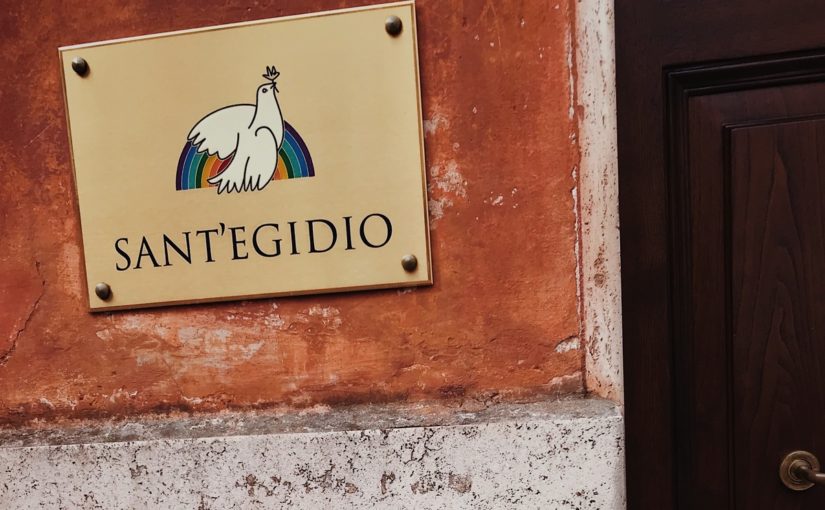by: Elizabeth Boyle
“The Community builds an unimpeachable record for integrity and good offices in the societies it comes to serve . . . Sant’Egidio practices nonpartisan social action that underscores its equanimity and commitment to the common good.”
— R. Scott Appleby, The Ambivalence of the Sacred
The first time I encountered the Community of Sant’Egidio was not in a “usual” way for a Sant’Egidio member—by attending prayer or perhaps engaging in service, but rather by reading an academic article. As a peace studies undergraduate interested in the intersection of religion and peace, I encountered The Ambivalence of the Sacred, a seminal work by Scott Appleby, Marilyn Keough Dean of the Keough School. Appleby argues that the “sacred,” religious actors, and religious ideologies in general are not monoliths, but that each tradition and each person within the tradition creates their own response to what they view as the “sacred.”
Appleby also discusses Sant’Egidio, detailing not only the community’s vast diplomatic and peace work in Mozambique, Uganda, Algeria, and elsewhere, but also its activities with a wide range of vulnerable people such as the DREAM project for HIV/AIDS treatment within the African continent, services for elderly people, those experiencing homelessness, those with disabilities, abandoned children, and immigrants. I was immediately hooked, and the work of Sant’Egidio was never far from my mind as I completed my undergraduate studies and began to think about graduate work.
When I returned to Notre Dame in the fall of 2020 to begin the Master of Global Affairs program at the Keough School, I began seeking out opportunities for my six-month internship. I was introduced again to Sant’Egidio, this time in a new way by Professor Jerry Powers, director of Catholic Peacebuilding Studies at the Keough School’s Kroc Institute for International Peace Studies. What began as a simple introduction soon led into an internship and then a full-time position with the Sant’Egidio Foundation for Peace and Dialogue as well as an offer to come to Rome and work with Sant’Egidio’s Peace Office during my six-month placement.
From the outset, spending time with the community’s outreach to migrants and refugees on the Greek island of Lesbos was one of my priorities. Thanks to an internship and placement grant from the Keough School’s Nanovic Institute for European Studies, I was able to join that project at the end of the summer.

Since starting my work in Rome in June 2021, I have been engaged in assisting Sant’Egidio’s Peace Office with the Rome Initiative, the community’s support for the peace process in South Sudan. The Rome Initiative seeks to find an inclusive way to bring the non-signatories of the Rome Declaration into dialogue and full agreement with the government of South Sudan. No two days at Sant’Egidio look the same, but our focus remains constant: how can we “live out” the values of the Gospel every day by supporting the most marginalized people?
In the spirit of this mission, Sant’Egidio offers robust support for refugees and migrants, including through a program called “Sant’Egidio summer.” For the past few years, about 250 Sant’Egidio members, mostly from Europe, spend part of their summer holiday on Lesbos which is now home to about 7,000 refugees. In the camps, they operate an English school, a School for Peace program for children (from teenagers down to two-year-olds), a full-service “restaurant,” and other services.
Thanks to the Nanovic Institute, I was able to join this group of Sant’Egidio volunteers on Lesbos. Understanding the refugee crisis on the island and around the world is pivotal to the peace work that I am engaged in. When one works in diplomacy and politics, it can often be easy to get caught up in the nitty-gritty of high-level technical decisions and quickly forget that every poor decision or mistake that is made can result in yet another family ending up in a tent in the middle of a refugee camp with an uncertain future.
I am incredibly grateful to have had this experience on Lesbos, witnessing and participating in the Sant’Egidio community “in action.” I look forward to sharing more about my experiences in my future posts.
Elizabeth Boyle ’20 is a student in the Master of Global Affairs program with a concentration in international peace studies. As an undergraduate at the University of Notre Dame, she studied and worked on interreligious peacebuilding and received the Yarrow Award in Peace Studies. She has interned with Religions for Peace, the US Commission on Civil Rights, USAID, and the US Department of State. Boyle is also the recipient of an Ansari Institute Fellowship.
Originally published at nanovicnavigator.nd.edu on September 15, 2021.
Top photo: The entrance to the Community of Sant’Egidio office in Trastevere, Rome.

